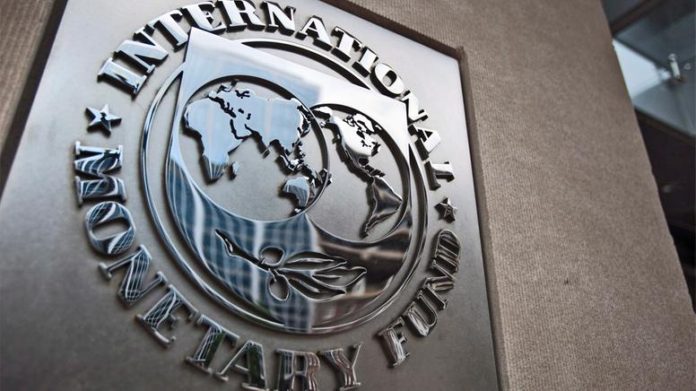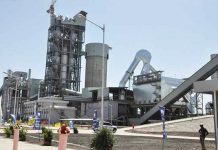
Nigeria’s Revenue at Risk Amid Global Tension – IMF Warns
The International Monetary Fund (IMF) has warned the Federal Government to remain vigilant in the face of mounting global trade tensions and tightening financial conditions, cautioning that Nigeria’s earnings from commodity exports could decline significantly if global demand weakens.
The warning was issued during the Global Financial Stability Report press briefing held on April 22, 2025, at the ongoing IMF/World Bank Spring Meetings in Washington, DC.
This came as the Federal Government said it would prioritise the payment of salaries, pensions, debt servicing, and national security obligations as Nigeria contends with dwindling revenues and rising fiscal pressure. The Minister of Finance and Coordinating Minister of the Economy, Wale Edun, disclosed this.
Edun, who spoke on Tuesday at the Nigerian Investor Forum held on the sidelines of the ongoing Spring Meetings of the International Monetary Fund and World Bank in Washington, DC, said the government was committed to maintaining fiscal discipline by cutting waste, conserving resources, and aligning spending with actual revenue.
“What do you do when your budget revenue is below expectation?” he said. “You have to come back down, conserve, and prioritise. That’s exactly what we have to do to ensure we maintain fiscal congruence.”
Edun also disclosed that a forensic audit of the Nigerian National Petroleum Company Limited is currently underway. The audit follows months of scrutiny over the financial conduct of the company, including its controversial N2.7tn fuel subsidy refund claim currently under review by government auditors.
Speaking at the Financial Stability Report press briefing, the Assistant Director in the IMF’s Monetary and Capital Markets Department, Jason Wu, acknowledged that Nigeria’s macroeconomic indicators had shown some resilience in recent months, supported by ongoing reforms and an improved policy framework.
He noted that Gross Domestic Product growth had remained steady and inflation had shown signs of easing.
“In the case of Nigeria, macroeconomic performance has held up, GDP growth has been fairly consistent, and inflation has been coming down,” Wu said.
He attributed part of the progress to policy reforms implemented by Nigerian authorities, including the liberalisation of the exchange rate regime.
“Earlier this year, we saw Nigeria’s sovereign credit spreads lowering. I think the reforms that the authorities have done, including the liberalisation of exchange rates, have helped in that regard,” he said.
Despite the progress, Wu cautioned that Nigeria remains exposed to external vulnerabilities, especially as global financial markets face heightened uncertainty and investor risk appetite weakens.
“This is when we might see increases in sovereign spreads that will challenge the external picture for Nigeria,” Wu warned. “Nigeria’s sovereign spread has increased in recent weeks as stock markets globally have declined.”
He stressed that the country’s heavy reliance on commodity exports made it particularly vulnerable to trade disruptions and geopolitical developments that affect global demand for oil and gas.
“If trade tensions are going to lead to lower global demand for commodities, this will obviously weigh on the revenue that they will receive,” Wu said. “Both of those developments would counsel that authorities remain quite vigilant to these developments and take appropriate policies to counter them.”
Also speaking at the briefing, Tobias Adrian, IMF Financial Counsellor and Director of the Monetary and Capital Markets Department, responded to a question on the rising cost of sovereign borrowing in Africa, especially as more countries, including Nigeria, return to the international bond market after a prolonged pause.
Adrian noted that many sub-Saharan African countries had experienced severe macroeconomic shocks in recent years, particularly from the COVID-19 pandemic and the subsequent spike in global inflation.
“The pandemic had an outsized impact on many countries. The inflation that ensued was very costly, particularly for countries that are importing commodities,” Adrian said.
He explained that financing conditions are influenced both by broader global market trends and by country-specific fundamentals such as macroeconomic stability, fiscal buffers, and investor confidence.
“The mandate of the Fund is very much focused on macro-financial stability. Getting back to a place with buffers, which then can lead to lower financing costs, is the main goal,” he said.
Adrian reiterated the IMF’s role in supporting African governments through programmes and policy advice aimed at restoring growth and reducing the cost of capital.
He said the Fund was committed to being a “catalytic partner” to ensure countries like Nigeria could navigate current uncertainties without falling into debt distress.
Nigeria has introduced a raft of reforms in the past year, including the removal of fuel subsidies, unification of exchange rates, and monetary policy tightening.
These measures have been positively received by the IMF and international investors, who view them as crucial steps towards restoring fiscal discipline and long-term macroeconomic stability.
The IMF’s call for vigilance comes at a critical time for Nigeria. With over 70 per cent of its export earnings and nearly half of government revenue tied to oil and gas exports, any sustained decline in global demand for commodities could have serious fiscal consequences.
The Fund’s latest economic projections show that Nigeria’s current account surplus is expected to narrow significantly—from 9.1 per cent of GDP in 2024 to 6.9 per cent in 2025, and further to 5.2 per cent in 2026.
This reflects a combination of declining oil prices, rising import costs, and capital flow challenges.
At the same time, inflation, though rebased and showing signs of moderation, remains elevated.
The NBS reported inflation at 24.23 per cent as of March 2025, after falling to 23.18 per cent in February.
The IMF expects the inflation rate to average 26.5 per cent in 2025 and rise further to 37 per cent in 2026.
Policymakers are now faced with the difficult task of keeping inflation under control, ensuring investor confidence, and protecting vulnerable Nigerians from the impact of rising prices and ongoing economic adjustments.

































